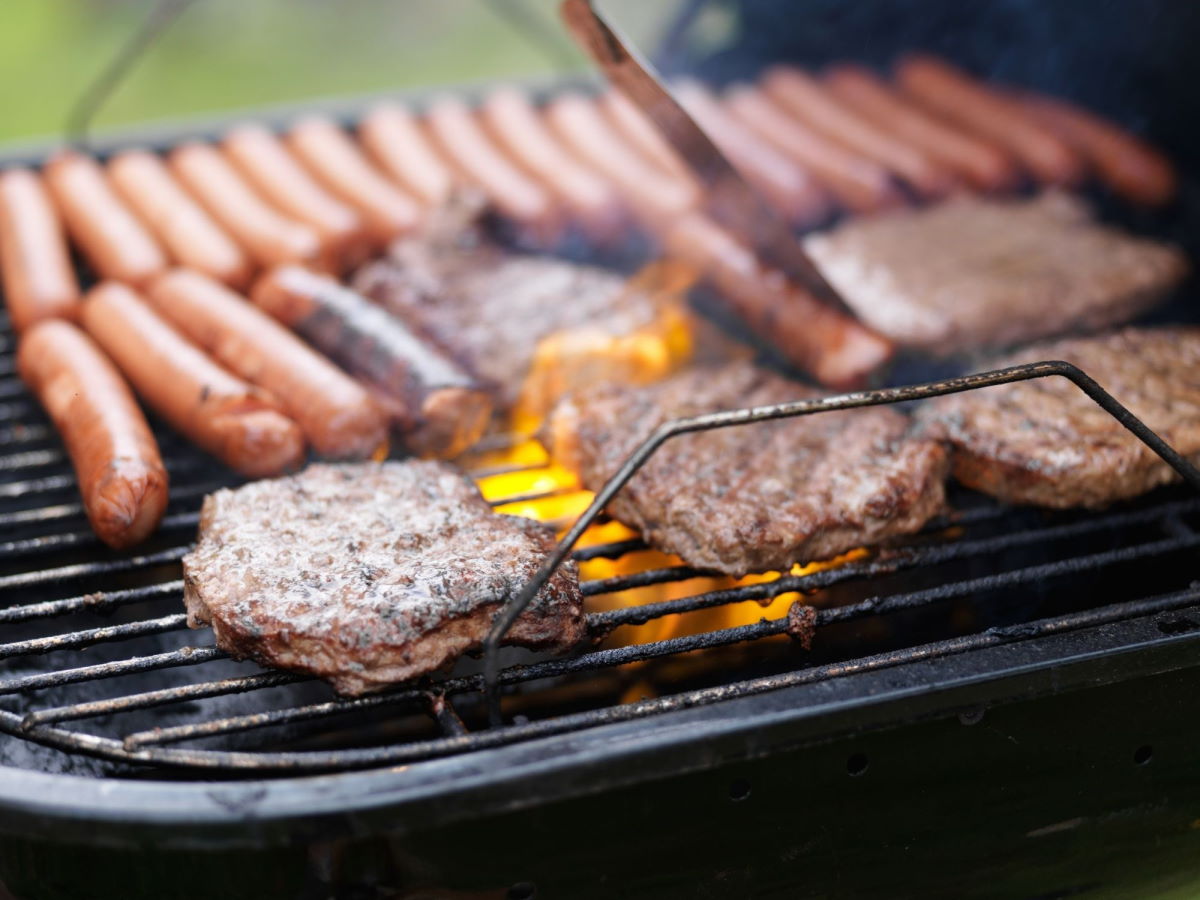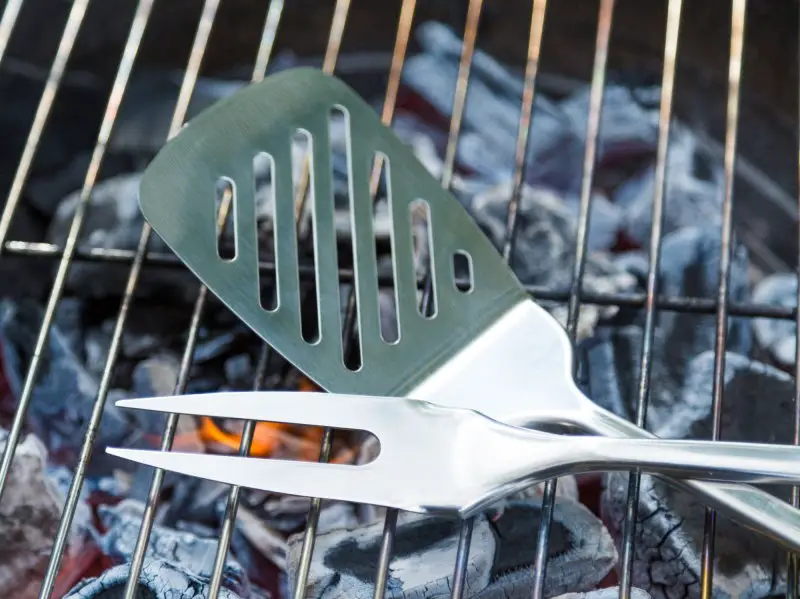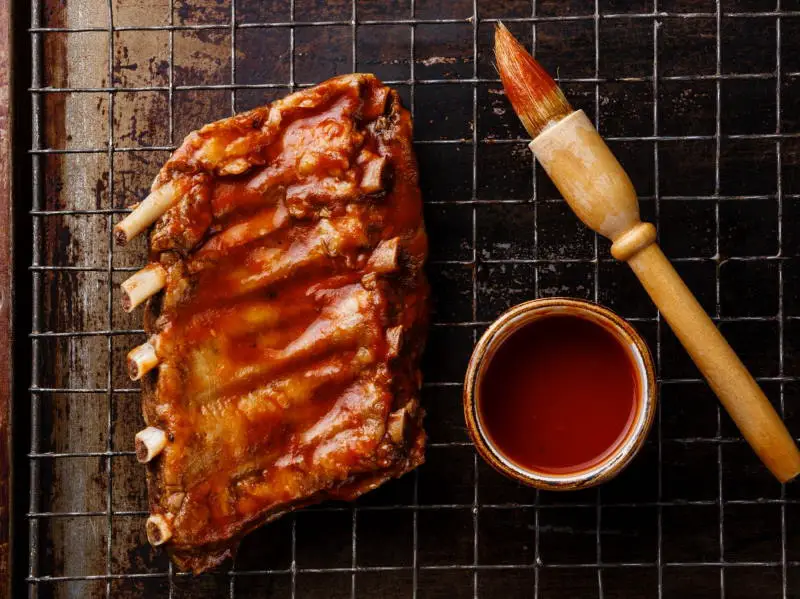
Despite what it may seem like, barbecuing is more challenging than you’d think. And if you’ve never done it before, you are bound to run into some problems. Barbequing, like anything else, takes practice.
Learning from your errors, along with the mistakes of others, will help you get better at it over time. However, everyone can use tips for better barbequing. In this article, we will cover ten tips for better barbequing that you might want to keep in mind.
Note: most links in this article are Amazon.com Affiliate links, see Affiliate Disclosure, thank you.
10 Tips for Better Barbecuing
Use copious amounts of nonstick spray
The number one problem you will face when barbecuing is how the meat sticks to your utensils and your grill. So, before you start cooking, spray your cooking area with a nonstick cooking spray. Doing this will stop your meat from sticking when you are flipping or removing it.
You will want to spray your grate before you light your grill. Another way you can try is to set aside or remove the grates and spray them down liberally.
If your meat sticks and tears, you will lose a large quantity of juice, and your meat might dry out. Also, avoid cooking spray with low smoke temperature like olive oil spray, and stick with vegetable oil spray for grilling.
Adjust temperature before starting
If you cook your meat at the wrong temperature, you risk drying it out, burning it, or undercooking it. A change in temperature or heat applied during the cooking process is also bad for barbecuing. You should never put food on the grill until you reach the proper temperature.
The change in temperature levels will trigger your food to dry out or burn. If you are using a charcoal grill, ensure that the coal is completely gray before putting the meat on the grill. Doing this will allow the temperatures to level out and most of the lighter fluid to burn off. Gas grills are easier in this regard since you can set your gas levels, and they won’t fluctuate.
We have a list of top meats and temperatures in our article Grilling Temperatures Guide. Use this article as a guide for those items and other similar types to get your best results.
There are a lot of fancy wireless blue tooth thermometers but we like the budget-friendly ThermoPro TP03. These thermometers are simple and easy to use. They read temperatures instantly and accurately. You can see us use this model in many of our YouTube videos.

Use minimum amount of lighter fluid
This one is a toss-up. You can get exceptionally good or terrible results with this technique. The lighter fluid will cause the food you are cooking to taste different from other types of grills. When you’re deciding whether to purchase a charcoal grill, you should consider the variation in taste each grilling method brings.
Trying not to utilize lighter fluid may trigger a lot of disappointment due to the reality that charcoal can be hard, if not impossible, to light without lighter fluid. We recommend a charcoal starter chimney or a modified coffee can so you can use the minimum amount of lighter fluid.
Thaw your meat before cooking it
You need to thaw the meat you are cooking before grilling. You can’t just chuck a steak on a grill and call it a day. If you want your food to achieve that perfect barbecue taste, you’re going to have to put some effort into it. This means you should not attempt to cook meat on a grill when it is still frozen, if you do here are some tips for grilling frozen meat..
You should thaw your meat 12 to 24 hours before you plan on cooking it. Alternatively, you can try thawing it in a microwave. If you defrost your meat in the fridge, set it out on the counter before cooking, leave enough time for the meat to get to room temperature.
Both these things are equally important if you want any hope of a perfect barbecue. Keep food safety in mind, and do not leave your meat sitting around at room temperature.

Use clean utensils
When preparing a barbecue, you need to follow the correct procedure throughout the cooking process. This means before, during, and after barbecuing. After the meat is prepared, never put it back in on the same plate you had when it was raw. Because raw meat can carry bacteria, this could trigger many undesirable health problems.
Additionally, keep two different sets of utensils for handling the raw and cooked meat. You can wash the same utensils but never use dirty tongs, plates, or pans for the cooked meat.
Never over handling
When the meat is cooking, you might feel an urge to poke it or turn it over again and again. But this is a beginner’s mistake. Never poke at your meat while it is cooking. Poking holes in meat will trigger the juice inside to leak out into the bottom of the grill.
Not just will this make your food dry and uninviting in the end, but it also could potentially ruin your bbq grill. At the very least, it will trigger a buildup of unwanted grease and juice on your grill, which will make cleaning up harder.
Keep it covered
As soon as the meat is on the grill, it would be best if you tried not to open the lid too many times. Each time you open the cover, you alter the temperature in the grill. And everyone knows that consistent cooking temperature is critical when it comes to preparing quality barbecue. The constant change in temperature level and the airflow will trigger your meat to dry up rapidly.
More heat is not always better
Another novice’s mistake is thinking that turning up the heat will either speed up or improve the cooking process. It will not. More significant heat is not always better. Yes, you might choose to barbecue at a higher temperature if you have a smaller grill and many guests. But generally, turning the heat up will cause the meat to dry up and potentially burn.
when to use foil
Using aluminum foil is a common practice when it comes to barbecuing. After all, meat tends to ooze juices throughout the barbecuing process. These juices can damage your grill if left uncleaned. Most people choose to wrap their meat in aluminum foil to help keep the meat moist.
This makes cleaning up much easier, simpler, and faster. However, few people realize that it will cause your food to have a different taste than a grilled taste. So, your desire to get out of cleaning your grill might come at the expense of quality taste.
A good tip for multiple shelve grills is to make a foil tray to place on the lower shelf to catch drippings. The foil tray will make for easy clean-up and reduce the possibility of flare-ups.

Wait before you sauce
If you intend to use your favorite barbeque sauce, make sure to wait as long as possible to put it on the meat. Before you cook your meat, feel free to marinade or dry rub with your favorite seasonings. However, if you put barbeques sauce on your meat combined with the drippings can cause large flare-ups.
The last thing you want is your meat to be dry or have a burnt taste. If you add the sauce a few minutes before it is done, it will set up or even caramelize.
Remember, your meat doesn’t stop cooking the minute you take it off the grill. It keeps cooking even as it cools. So you put the sauce on and then let your meat rest.
Conclusions
Critical tips for better barbequing include things like cooking spray, correct temperature, and waiting to sauce. Is this all there is to great barbeque? No.
There is always more to great barbeque, and most of this is practice. Get out to your grill and get cooking. You will enjoy your time at the grill and your food from your grill.
Click here for our article How to Control the Temperature on Your Grill

